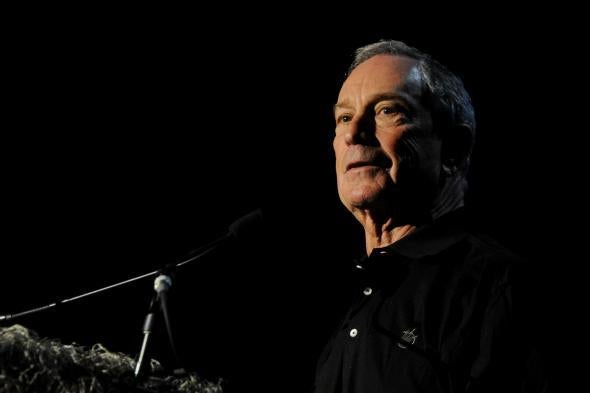This is the second installment of a continuing series in which American events are described using the tropes and tone normally employed by the American media to describe events in other countries.
NEW YORK, United States—In just a few weeks, the 12-year rule of the powerful oligarch Michael Bloomberg over this bustling city of 8 million people will come to an end. Though much of the population enjoyed relative prosperity and social stability during his years in power, critics questioned his authoritarian and increasingly eccentric leadership style.
One of America’s richest men, Bloomberg made his fortune in America’s financial sector during the country’s rough-and-tumble era of free-market privatization in the 1980s. He went on to control a vast media empire that bears his name. In 2002 Bloomberg rode into office fueled by his personal fortune, casting himself as a technocrat sitting above the daily fray of democratic politics.
Under his control, the city has grown wealthier, safer, and healthier (though with a level of income inequality rivaling that of Honduras), and he has left his mark with a number of popular public works projects. Intriguingly, this native of the hated rival city of Boston—who makes regular but mysterious visits to his walled-off estate on a tropical island off the country’s shores—has managed to cast himself as a consummate New Yorker, respected by wide segments of the city’s population.
However, the billionaire politician has also courted controversy by ramming through new election laws to keep himself in power and turning the city’s security services into a vast intelligence apparatus empowered to search citizens without warrant. He has also provoked amusement with highly publicized campaigns aimed to improve the eating habits of New Yorkers. These heavy-handed efforts were often resisted by large swathes of this ethnically diverse city known for its greasy street-corner sausages and carb-heavy bread-based delicacies.
At the beginning of next year, Bloomberg will be replaced by Bill de Blasio, a former Marxist revolutionary who has cast himself as a champion of the city’s downtrodden. But some critics are skeptical that the populist crusader can follow through on his promises. His lopsided election victory last week may be a sign that New York is sliding back into the system of one-party rule that characterized the city’s politics for most of the 20th century.
Bloomberg has made no secret of his ambitions for higher office, though experts believe he has limited appeal in America’s less-developed but politically influential agricultural regions, where powerful armed groups have bristled at his suggestions for limiting their access to advanced weaponry and munitions. But even if this is the end of this tycoon’s political career, he will likely still be remembered as one of this fractious nation’s most intriguing and unlikely leaders.
